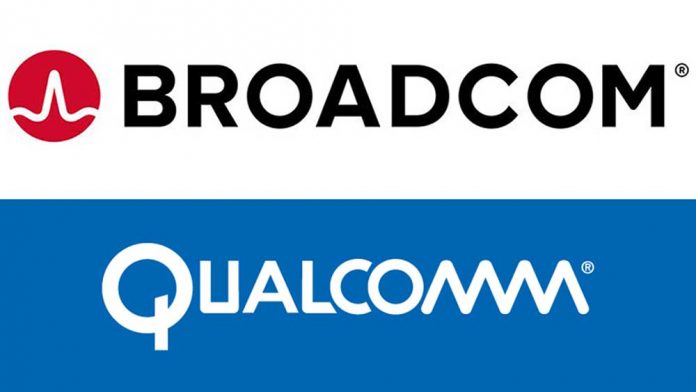
SAN DIEGO: Qualcomm Inc on Friday called a meeting with Broadcom Ltd to discuss the latter’s $121 billion bid constructive and opened the door to more talks but continued to reject the proposed deal between the semiconductor companies.
Qualcomm’s response raises the stakes in a battle over what would be the technology sector’s largest-ever acquisition. The two companies have less than three weeks to negotiate a potential deal until Qualcomm shareholders are asked to vote on a challenge by Broadcom to Qualcomm’s board of directors.
Qualcomm has been seeking to walk a fine line between resisting Broadcom’s acquisition approach, which it says undervalues it and is fraught with regulatory risks and demonstrating to its shareholders and proxy advisory firms that it is willing to engage to secure a better deal if possible.
“While the current Broadcom proposal is unacceptable, our board is intensely focused on maximizing value for Qualcomm stockholders, whether through executing on its growth strategy or by selling the company,” Qualcomm Chairman Paul Jacobs wrote to Broadcom CEO Hock Tan on Friday in a letter released by Qualcomm.
Broadcom offered no immediate comment. Qualcomm shares were up 0.4 percent at $65.60, significantly below Broadcom’s latest $82 per share cash-and-stock offer. Broadcom shares were down 0.8 percent at $249.89.
Qualcomm’s meeting with Broadcom on Feb. 14 was the first time the two companies met to discuss a potential combination since Broadcom unveiled its unsolicited bid last November.
As part of the takeover battle, Broadcom is asking Qualcomm shareholders to back its effort to replace a majority of Qualcomm’s board of directors in a vote scheduled for March 6. It has called its latest bid its best and final offer.
In the meeting this week, Singapore-based Broadcom was willing to make certain divestitures to satisfy antitrust regulators but was still resistant to “other commitments that could be expected” to be required by government regulatory bodies, Qualcomm said.
Broadcom has already said it is willing to sell two Qualcomm businesses to resolve any antitrust problems. These are its Wi-Fi networking processors and RF Front End chips for mobile phones.
In the meeting, Broadcom agreed to divest if needed its own Wi-Fi business, instead of Qualcomm’s, a source familiar with the confidential details of the meeting said.
Broadcom also wanted Qualcomm to include in the merger agreement that Qualcomm will refrain from lawsuits related to licensing while the deal is being reviewed by regulators, according to the source. Qualcomm did not agree to that.
Qualcomm reiterated that Broadcom’s promised breakup fee of $8 billion in the event regulators thwart the deal did not come close to compensating for risks related to the deal.






